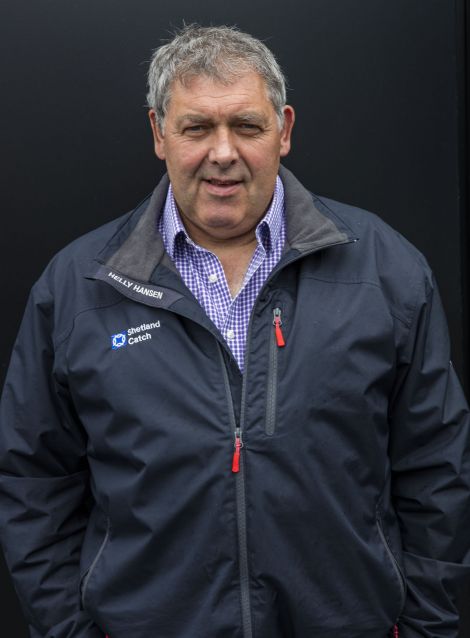News / EU exit: fishermen seeking a better deal
FISHERMEN and politicians have welcomed a positive round of initial talks with Scottish fisheries minister Fergus Ewing over the industry’s future following the UK’s vote to leave the European Union.
Huge opposition to Brussels’ management of fisheries led to more than four out of five voters in Whalsay, the isles’ main fishing hub, voting to leave.
George Anderson, skipper of pelagic boat the Adenia, said many in the local industry had been “waiting 40-odd years” for this moment.
Shetland MSP Tavish Scott and Shetland Fishermen’s Association (SFA) chief executive Simon Collins both said the constitutional state of flux afforded Scotland’s fishermen the opportunity to secure a more favourable deal.
Ewing met with fishing industry leaders on Monday to discuss the fallout from the 23 June vote – and won’t have been surprised to hear that fishermen are opposed to the SNP Government’s efforts to maintain Scotland’s place in the EU.
The SFA has remained neutral while acknowledging many of its members wanted out, but Collins says that instead of “fighting to minimise damage” from Brussels, the industry might be able to get something positive out of negotiations.
“The key thing as far as the fishing industry is concerned, certainly in Shetland, is many of us have strong contacts with Europe,” he said. “None of us are anti-immigration or this kind of stuff, and all the other nonsense that’s been peddled.
“What we’re after is properly managed fisheries as they have in places like Faroe and Iceland and Norway, and there’s no reason why we couldn’t have the same arrangements there and have a perfectly decent relationship with the rest of Europe.”
Following Monday’s talks with Ewing, Collins – who also talked of ended “40 years of hurt” for fishermen – was in Strasbourg for more meetings on Tuesday.
Become a member of Shetland News
He said the association had been deliberately “guarded” prior to the referendum because of the need to work with whichever side emerged victorious, and admitted the outcome had been unexpected.
“The opportunity is absolutely enormous,” Collins said. “We’re not asking for a grab, just a fair deal to manage this properly and control access to it.
“We understand all the ramifications, and we’re one of the cogs in this wheel. That’s why we have to make sure we’re talking to absolutely everyone to understand where they’re coming from.
“It’s a great opportunity – we can’t blow it by being stupid or by not recognising all the other constraints that are on the UK and Scotland.”
Scott said following the talks that everyone agreed the common fisheries policy (CFP) does not work.
“The status quo on fishing policy is wanted by no one in the industry and few in either the Scottish or UK governments,” he said. “The first step is to ensure that the Scottish Government has a minister in the UK talks that will work out a UK negotiating position.
“That person must understand that fishing wants a new beginning. The fishing industry here look at Norway and see them directly negotiating with the EU. It is no surprise they want the same as a coastal state. It is not so much a seat at the top table as a seat at the right table.”
Anderson, one of many isles fishermen who backed the Fishing for Leave campaign, said he now hopes “we’ll get back control of our waters, and maybe be able to manage the stocks better than they’ve been doing in Brussels”.
“It’s a chance for fishermen to look after and manage what we have,” he said, “and control who’s fishing inside the waters.”
He acknowledged it wouldn’t be an easy process, with quotas unlikely to change much in the next two to three years, but said he was “looking forward to the challenge” and the first meetings with Ewing had been “very positive”.
Anderson said the SNP’s aspiration of keeping Scotland within the EU was “never going to happen” and that the democratic vote in 2014 against independence had to be respected.
Recalling the turmoil when the UK first joined the European common market back in the 1970s, he believes things will soon settle down following a period of political upheaval.
“We had the same carry-on when we went into Europe to begin with. Shetland, Orkney and the Western Isles voted not to join the common market. Once it settles down and everything gets levelled out everything will sort itself out.”
Become a member of Shetland News
Shetland News is asking its many readers to consider paying for membership to get additional features and services: -
- Remove non-local ads;
- Bookmark posts to read later;
- Exclusive curated weekly newsletter;
- Hide membership messages;
- Comments open for discussion.
If you appreciate what we do and feel strongly about impartial local journalism, then please become a member of Shetland News by either making a single payment, or setting up a monthly, quarterly or yearly subscription.

























































